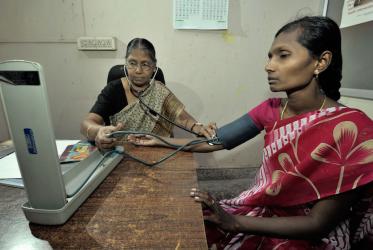Displaying 1 - 11 of 11
“Good healthcare a right, not a privilege,” says WCC-EAA
11 October 2017
Applications open for WCC Eco-School
10 May 2017
Youth engagement fundamental to HIV response
18 April 2017
“It’s time to be brave, to form diverse partnerships”
02 March 2017
“Health and healing for all people, that is the challenge”
28 February 2017








